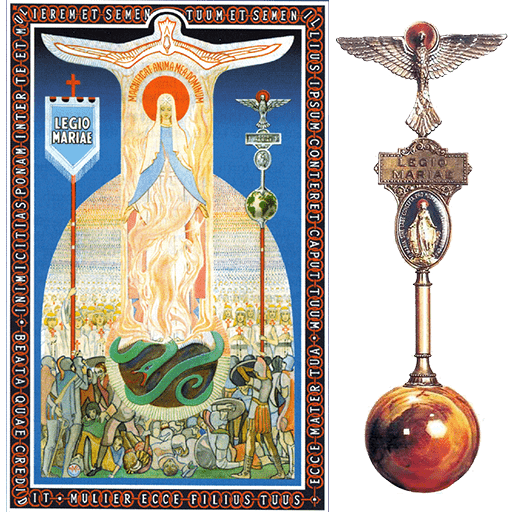Amendment to the Legion Handbook
The Concilium has noted that misunderstandings can arise, sometimes, regarding the role of the Comitium, as shown in the Handbook (Chap.28:2:2). For example, it is incorrect for a Comitium to regard itself as a Comitium only when officers of related Curiae are present. Another misunderstanding may result in thinking that there cannot be more than one Comitium in a diocese.
The Concilium, therefore, considers that some further clarification of the role of the Comitium should be included in the Handbook. The following amendment to the Handbook, which does not involve any change of rule, showing the original wording of the Handbook with the additional words of clarification, was approved by the Concilium at its meeting on 19th October 2008.
Amendments to Chap.28:2 in the Handbook on The Curia and the Comitium
2. THE CURIA AND THE COMITIUM
1. When two or more praesidia have been established in any city, town, or district, a governing body termed the Curia should be set up. The Curia shall be composed of all the officers (Spiritual Directors included) of the praesidia in its area.
2. Where it is found necessary to confer on a Curia, in addition to its own proper functions, certain powers of superintendence, over one or several Curiae, such higher Curia shall be styled more particularly a Comitium and each of its meetings is considered to be a Comitium meeting whether or not representatives of the related Curiae are present.
The Comitium is not a new council. It continues to act as a Curia in respect of its own area and to govern directly its own praesidia. In addition it supervises one or more Curiae. Elections of officers of these Curiae are subject to ratification by the Comitium, as the nexthighest council.
Each Curia and praesidium directly related to a Comitium shall be entitled to full representation on the latter and, therefore, their officers have the right to vote at elections of officers of the Comitium.
In order to relieve the representatives of a Curia from attendance at all the meetings of the Comitium (which, added to the meetings of their own Curia, might form an undue burden), it would be permissible to deal with the business of that Curia and to require the attendance of its representatives only at every second or third meeting of the Comitium. It is not required that representatives of all related Curiae attend on the same month.
A Comitium shall not ordinarily cover an area larger than a Diocese, but may cover a smaller area. If a diocese has many Curiae or where the Curiae are widely separated, more than one Comitium, perhaps several, may be necessary and desirable. There may be circumstances where, for the purposes of good administration, and with ecclesiastical sanction, a Comitium could be asked to supervise one or more Curiae in another diocese or dioceses.

